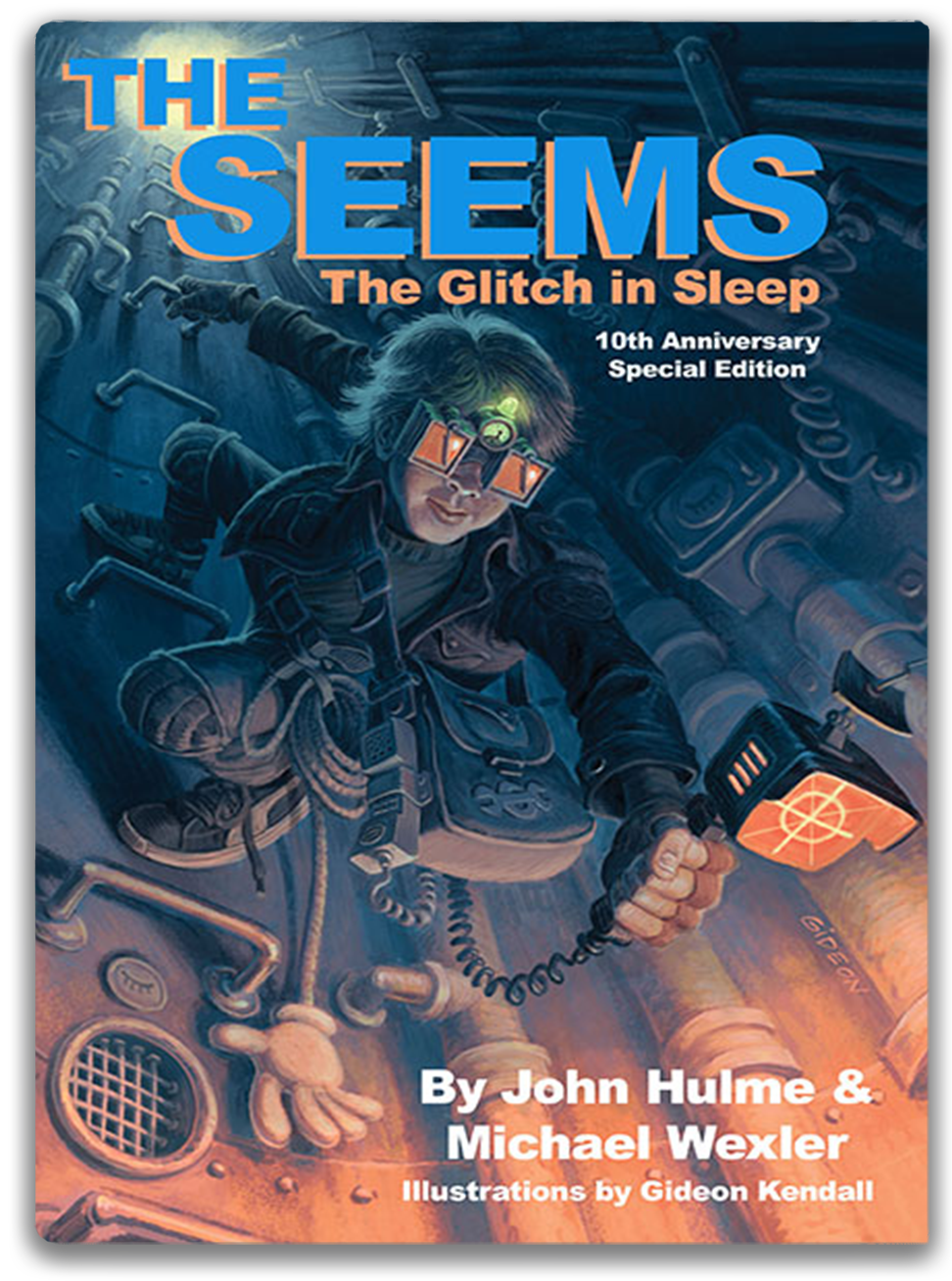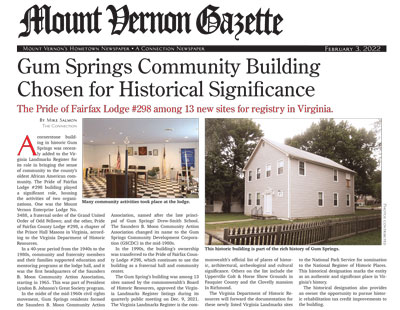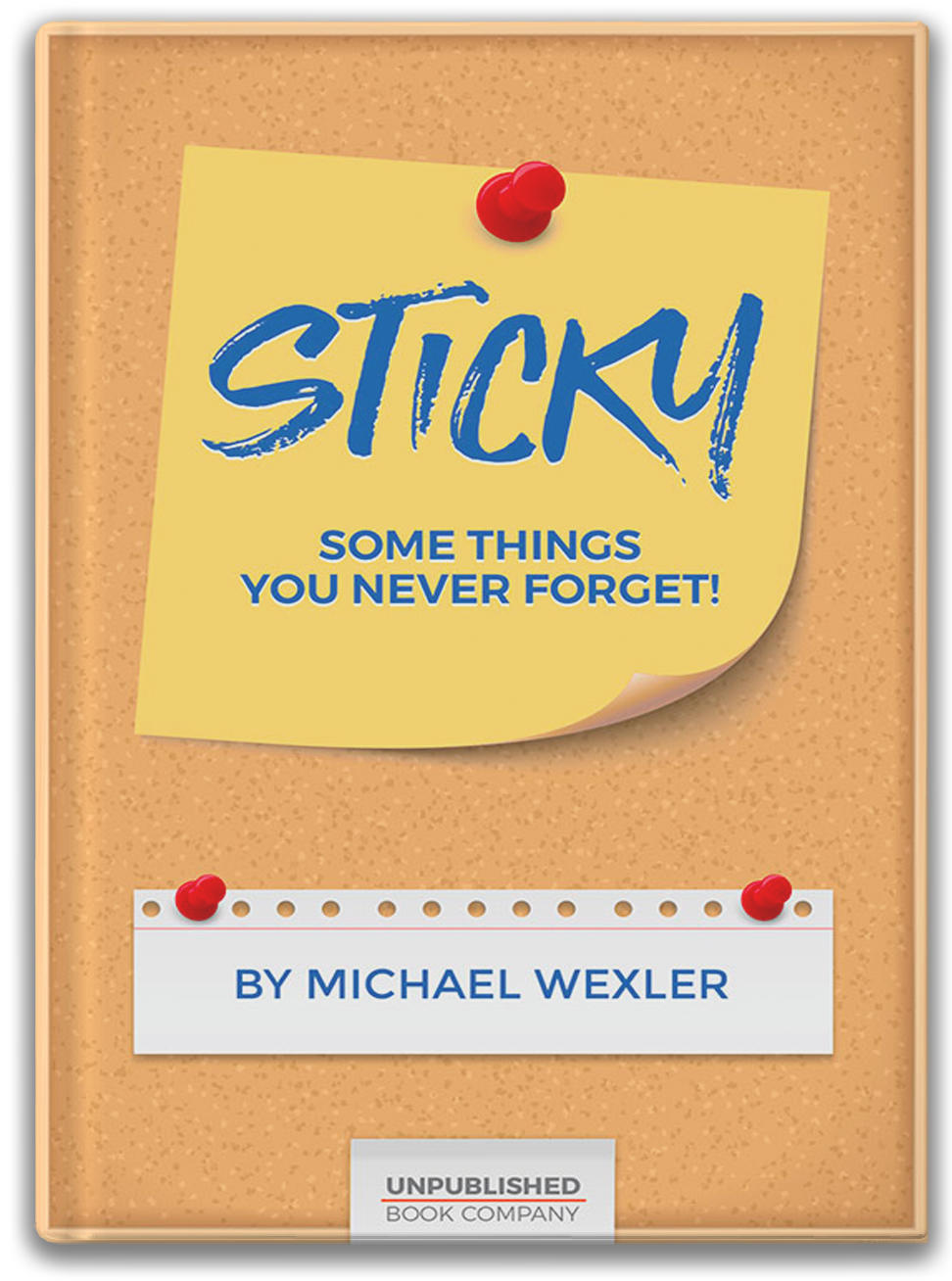Hot off the Press-es
Local Author Publishes Book of One-Act Plays
West Potomac alum writes to teach, and is now a playwright living on Martha’s Vineyard.
Through her work as a Montessori teacher and experience writing, Carrie Peckar came up with a series of children’s plays with music that are part of the learning experience that children go through, intertwined with life’s lessons that stitch it all together. The result is in her book titled “Weird and Wonderful: One-Acts and Musicals for Kids Ages 6-12,” which is all about the youngsters empowering themselves with lessons, music and fun.
“I was trying to give the independent power to them,” she said.
Peckar is a West Potomac High School alumna, Class of ’97. She moved on to graduate from Rutgers University and then became a certified Montessori teacher. She taught pre-k and elementary in New Jersey, and Mount Vernon,

where she was the Director at the Mount Vernon Community Children’s Theater. She has written plays for almost twenty years before moving to Martha’s Vineyard where she currently resides.
Montessori is a method of education that is based on self-directed activity, hands-on learning and collaborative play, the Montessori Northwest information said. Their description is filled with terms such as creative choices, age-appropriate activities, exploring knowledge, and maximum potential. In the late 1920s, Dr. Maria Montessori linked this teaching to music and social interactions, among other things and this is in-line with Peckar’s theatrical lessons.
The various plays in her book are geared to get the students into the music through dialogue and character. The object is for a school or particular teacher to follow the lessons in the book, get the class to put on the plays, and adopt the teachings in the play even if it is on a temporary basis. The formula relies on participation, and Peckar feels the lessons and teachings will remain with the students “so they can really own their characters,” she said.
“I created this book and laid out everything for an educator to run with it,” she said.
“If I can reach just one educator or artist and inspire them during this challenging time for all theater arts, then I have done my job,” she said.
Island Living
Currently she’s doing all this from her home in Martha’s Vineyard, which is an island community off the shores of Cape Cod and Massachusetts – a distance from Mount Vernon. “I have roots on this island, I’ve been coming here every summer since I was a baby,” she said. Peckar’s family had a house on the island, and when her grandmother died, it went empty for a few years until Peckar and her boyfriend moved in a few years ago. She started substitute teaching at the Montessori school on the island, and went full time after that.
Being a summer vacation destination, Martha’s Vineyard sees an additional 200,000 people there in the summer, and all the vacation amenities as well, but this isn’t year round. The few full time residents form a tight community in the winter, said Peckar. “Most places close and there is a tight knit community of places that stay open and really take care of each other,” she said. “We actually do something called the ‘summer shuffle’ where we rent the house out in the summer and we move up island to avoid all that,” she said.
The summer also brings in a celebrity or two, she said. “I’ve had run-ins with Bill Murray, Tony Shaloub, Amy Schumer, Ted Danson, Jim Irsay but no Kennedys. Most people on the island have a story or two,” she noted.
Source: http://www.mountvernongazette.com/news/2022/feb/03/local-author-publishes-book-one-act-plays/
Michael Wexler shares ‘sticky’ memories in the latest book
In April, I reviewed The Times’ sometimes freelancer Michael Wexler’s book “The Work From Home Survival Guide,” and admitted it cracked me up. Last week I willingly read “Sticky: Some Things You Never Forget,” and I have to say, I laughed all the way through it. Wexler’s first book, “Voices of the Xiled,” was published by Doubleday in 1994; “Sticky” is his eighth and most recent book. He lives part-time in Oak Bluffs and in upstate New York, near the Finger Lakes.
“Sticky” takes you on a trip through Wexler’s hippocampus as he begins with a grade-school memory — the time the principal came to his fourth grade classroom and whispered in his ear, “Come with me.”
Wexler writes, “At this point, I was convinced that somebody had died and gone to heaven, or worse yet, that the school had found out that I was selling candy,
acquired from my grandfather who knew somebody in New York City, to kids at Hebrew School in individually wrapped and labeled brown paper bags (full service).”
Instead, the principal walked him to the school library, where he was introduced to a high school student described as having “a pair of Coke-bottle glasses that wrapped around his head like a snake and were held in place by a black elastic strap.
He looked like … a dork.” The dork was a computer wiz at a time when information was stored on floppy disks, and Wexler and another young student were allowed to spend an hour a week in the library with the wiz kid to help his teachers measure whether computer skills were a good thing for students.
This was in Highland Park, N.J., where Wexler’s mother moved him and his brother to be closer to her parents after his father and mother divorced. This experience put young Wexler on the path to learning more about technology than most kids his age, and he took to computers like butter on a biscuit. In fact, his mother was seeing the head of Rutgers’ computer department at the time, giving Wexler access to an even more challenging computer lab. He was developing and cracking computer codes at a very young age. Then one day, after cracking the game Wizardry, Wexler decided he was done with the geek squad. He had “climbed to the top of the mountain and there was nowhere else to go.”
The reader rides the next little wave of the author’s literary canoe trip into high school, where Wexler is a self-proclaimed “SUMJD,” or “semi-upper-middle class Jewish degenerate.” In other words, Wexler finally fits in with a group of friends, and they hang out together regularly, and even maintain their strong friendship into college. They call each other “the HPs,” after their hometown, and spend college breaks visiting one another rather than taking off to Aspen or East Coast beaches. His college gang was made up of a mismatched band of brothers with nicknames like Sloopy, Richie Rich, the Gin Man, and the Dogger. They make it through a litany of college pranks, like dropping a live chicken into the middle of a frat party to stealing a golf cart for a joyride to getting pulled over and telling the police officer that the driver’s ID was “in his butt.”
The book is filled with “sticky” memories, from Wexler’s postgraduate days spent writing books for middle-grade readers in a basement apartment back in his hometown to trips to Atlantic City, where he played hours and hours of poker with the boys, to Kansas City where he taught while getting his master’s degree to — long story — a trip to Belize with the CEO of a demolition company. All along the way you wish you could hang out with the guy over a long weekend, maybe in a Jersey Shore beach house, well stocked with a pony keg and maybe something stronger. Most of all, Wexler’s book reminds us all that we have those same sorts of memories — they’re not all pretty, but they do make up who we are.
The Times asked Wexler a few questions about “Sticky.”
How long did it take you to write ‘Sticky’?
Um, it took me about 40 years to write “Sticky,” because the stories in it are a compilation or collection of those little nuggets of hard-to-forget sublimity that occur over the period of a lifetime, or half a lifetime, or however long 40 years is relative to the end. The actual “writing” probably only took seven years.
Why did you write it?
I had to. No, really. I dragged out graduate school from the age of 30 to almost 40, and at a certain point they (UMKC in Kansas City) told me that I had to graduate or else they were going to kick me out. Who would want to leave school? When I defended my master’s thesis in creative writing, which “Sticky” was, they said, “Sorry,” at the end of the defense. “Now you have to graduate.” I took that master’s thesis, polished it, and “Sticky” is the end result.
Are you a freelance writer, a writer, an author, or a teacher right now? Or candlestick maker, maybe?
My Facebook bio says “tinker, tailor, soldier, spy,” which is how I kind of think of myself. (Keep in mind I’ve also recorded five records, lol [you can find them at bit.ly/wexlermusic], and I work at Alley’s General Store. So I don’t define myself as a writer, to be honest, but you can call me that if you want.
Are you working on a book now? If so, what’s it about?
Yes. I am working on a book called “A Whole New World.” It’s about how to change the world, but not in the sense that phrase is usually employed. I mean literally changing the world, like making it look different, operate differently, happen differently, have different sounds, colors, sights, and smells.
What do you hope people get as a takeaway if they read it?
Nothing. Stay light on your feet.
I asked Wexler to send me a copy of “Sticky” so that I could read the book and review it. I marked it up in pencil just in case he asks me to return it to him. He’s a funny guy, and I don’t want to think of him living in that basement apartment ever again.
“Sticky: Some Things You Never Forget” is available online through the Unpublished Book Co. website, unpublishedbookcompany.com/sticky.
Working remotely: 8 books that address the rewards and the challenges
This reads like the What to Expect When You’re Expecting of books about working remotely. Acknowledging some of the benefits of wfh (not getting out of your pjs until dinner), Wexler also warns that “there’s a fine line between sensei and senseless” and he offers practical advice for not crossing that line too often. This is a fun, philosophical guide to setting good work-at-home habits and making them stick.
A Jewish man wears a face mask to curb the spread of the coronavirus as he reads from a Torah scroll at the Western Wall, the holiest site where Jews can pray in Jerusalem’s Old City.
What Jewish mysticism can teach us about the coronavirus
(RNS) — Jews are not unfamiliar with pain and suffering. We memorialize national calamity with holidays, rituals and remembrances, as we do today on Holocaust Remembrance Day. We have highly scripted rituals of mourning and remembrance. Even amid the joy of a wedding, the groom smashes a glass to recall the destruction of the Temple in Jerusalem centuries ago. Most recently, the Holocaust forced us to confront a stark existential question: How can a supposedly benevolent G-d allow such a terrible thing to happen?
In the face of the global suffering inflicted by the coronavirus pandemic, we are faced with an eerily similar question.


Publisher’s Weekly Children’s Book Reviews

Newsday (New York)
BOOKENDS: CHILDREN’S BOOKS
“The Seems” is the rare fiction series that can be read purely for the adventure, or mulled over for its implied questions about big philosophical issues: Is reality what we see, or is there a reality behind all this? How do we know who holds power in the world? How do we know we’re doing the right thing?
Thirteen-year-old Becker Drane has secretly been recruited to work for The Seems, the world behind the world. It’s the workers of The Seems who develop and produce the weather, who package and ship dreams, who are responsible for the orderly progression of time, who run a thousand other pieces of reality that we in the visible world take for granted. Becker has the coolest job in The Seems: He’s a Fixer, the guy who’s sent in when something goes wrong that’s too big for an individual Seems department to correct. Fixers are to The Seems what extreme snowboarders are to sport, and Becker is the youngest Fixer ever.
In “The Glitch in Sleep,” insomnia threatens to derail the planet, while in “The Split Second,” an underground organization known as The Tide puts the world in peril with a bomb that can rend the fabric of time. Both threats turn out to have practical Seemsian solutions, which are effected through the use of fabulous tools like the Helping HandTM and other gadgets that make clever use of puns and plays on words. But underneath it all is the question: Why did Becker’s best friend go over to The Tide, and is Becker naive to support the Powers That Be?
BY SONJA BOLLE

Having worked his way up in the ranks, Becker finds himself on his first Mission as a Fixer — and it’s a doozy. A Glitch, one of the worst types of problems to crop up, runs rampant in the Department of Sleep, keeping the World from catching any shut-eye. Despite his junior status, Becker throws himself into the Mission and soon finds himself with more trouble than he bargained for. A rash decision leads to his suspension, forcing Becker to try to redeem himself and (hopefully) determine how (or even if) this recent run of problems is linked to The Tide, a shady organization dedicated to undoing everything The Seems attempts to uphold.
With an imagination hopped up on a dozen cans of Red Bull, Hulme and Wexler take no prisoners in creating Becker’s unique world and its clockwork cousin, the realm of The Seems. Reminiscent of the works of Jonathan Stroud and Jasper Fforde, this book makes use of amusing footnotes, a jargon-laden glossary and a guide to the unique tools wielded by the Fixers in their day-to-day routine.
THE GLITCH IN SLEEP has the toughest job as the first book in the series: it needs to set up the world and make it believable and fun. The authors take that challenge and create an infinitely memorable environment that will set the stage for Becker’s further adventures. Although most every dilemma gets resolved by book’s end, we can only hope that future installments will add more dimension to the characters and provide details about the mysterious Tide.
For fans of adventure and imagination that barrel along at a breakneck pace, THE SEEMS: THE GLITCH IN SLEEP opens the door to the next book series you’ll become addicted to.
BY BRIAN FARREY
Please Email Us At
Unpublished Book Company is an
independent American publisher
committed to inventive and
boundary pushing literature.
SUBSCRIBE TO OUR NEWSLETTER
STAY IN TOUCH









